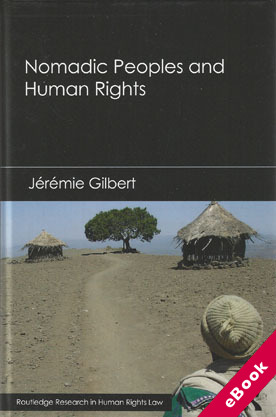
The device(s) you use to access the eBook content must be authorized with an Adobe ID before you download the product otherwise it will fail to register correctly.
For further information see https://www.wildy.com/ebook-formats
Once the order is confirmed an automated e-mail will be sent to you to allow you to download the eBook.
All eBooks are supplied firm sale and cannot be returned. If you believe there is a fault with your eBook then contact us on ebooks@wildy.com and we will help in resolving the issue. This does not affect your statutory rights.
Although nomadic peoples are scattered worldwide and have highly heterogeneous lifestyles, they face similar threats to their mobile livelihood and survival.
Commonly, nomadic peoples are facing pressure from the predominant sedentary world over mobility, land rights, water resources, access to natural resources, and migration routes. Adding to these traditional problems, rapid growth in the extractive industry and the need for the exploitation of the natural resources are putting new strains on nomadic lifestyles.
While it is difficult to provide a clear estimate of nomadic peoples around the world, there is an agreement that their nomadic way of life, as well as their survival, is in danger, and that nomadism itself is facing extinction.
This book provides an innovative rights-based approach to the issue of nomadism looking at issues including discrimination, segregation, freedom of movement, land rights, cultural and political rights, and the environment and effective management of natural resources.
The book analyses the extent to which human rights law is able to provide some form of protection for nomadic peoples to perpetuate their own way of life and culture, and sets out why such protection should be granted. It questions whether the current human rights regime is able to protect nomadic peoples, highlighting the lacuna that currently exists in international human rights law in relation to nomadic peoples.
It goes on to propose avenues for the development of specific rights for nomadic peoples offering a new reading on freedom of movement in the context of nomadic peoples and on nomadic peoples' rights to land and natural resources.